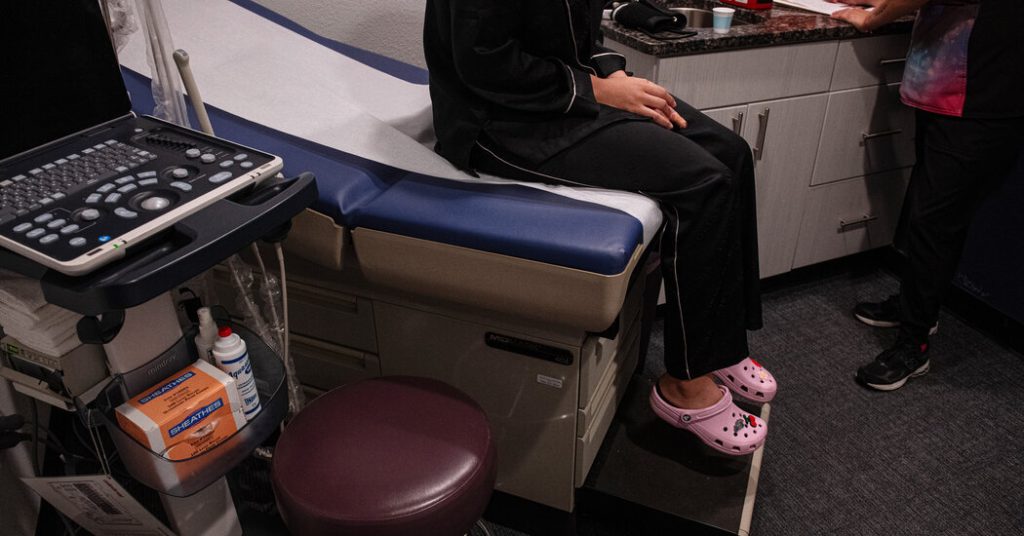Leah, a 29-year-old woman, found out she was five weeks pregnant on the same day that the Arizona Supreme Court reinstated an 1864 law banning nearly all abortions in the state. Concerned about the future availability of abortion services, she decided to get the procedure at the Acacia Women’s Center in Phoenix. This decision felt personal for Leah and others at the clinic, as they navigated the implications of the ruling on their lives and health care choices. The ruling has sparked outrage and political maneuvering, with Democratic lawmakers attempting to repeal the law but failing to do so.
The decision to uphold the Civil War-era law that outlaws abortion from conception has the potential to reshape the 2024 election and has left many women feeling misunderstood by the judges and politicians who supported the ban. Patients at Acacia expressed concern over the limited availability of abortion services in Arizona, with some clinics already booked through April and uncertainty about their future options. The 1864 ban prohibits all abortions, including in cases of rape or incest, and stresses that there is no state right to abortion.
Women at the clinic shared their personal stories and reasons for seeking abortion. Some were mothers who could not financially support another child, while others cited mental health concerns or the desire to pursue education or career goals. They expressed frustration and confusion over the Arizona Supreme Court’s ruling, which forces them to live under a law written before women had basic rights. Many patients at Acacia scrambled to make appointments and consider their options, racing against time to access the care they needed.
The environment outside the Acacia Women’s Center has long been contentious, with protesters condemning abortion and clinic owner Dr. Ronald Yunis. The clinic, like many others, has been a battleground for anti-abortion activists and has faced legal challenges and threats over the years. While some lawmakers and conservative groups support the Arizona Supreme Court’s decision, others have called to repeal the 1864 law. Dr. Yunis and his staff are preparing for layoffs if they can no longer provide abortion services in the state.
Patients at Acacia who come from out of state or are undocumented face additional challenges in accessing abortion care and participating in advocacy efforts. Some women, like 17-year-old Iris, juggle multiple responsibilities and limited resources, making the decision to seek an abortion a complex one. Iris believes in the importance of legal abortion and plans to vote in support of pro-choice candidates or ballot measures, but she is too young to vote in the upcoming election. Her mother, Ruby, accompanies her to the clinic, setting aside religious beliefs for the sake of her daughter’s well-being and future.
As women like Iris navigate the complexities of the Arizona Supreme Court’s ruling and the potential impact on access to abortion in the state, their stories highlight the deeply personal and individual nature of reproductive health choices. The legal battles and political debates surrounding abortion have real and tangible consequences for women and families, underscoring the need for continued advocacy, support, and access to comprehensive reproductive health care. The 1864 law’s reinstatement has left many women feeling vulnerable and uncertain about their futures, reinforcing the importance of protecting reproductive rights and ensuring access to safe and legal abortion services.


